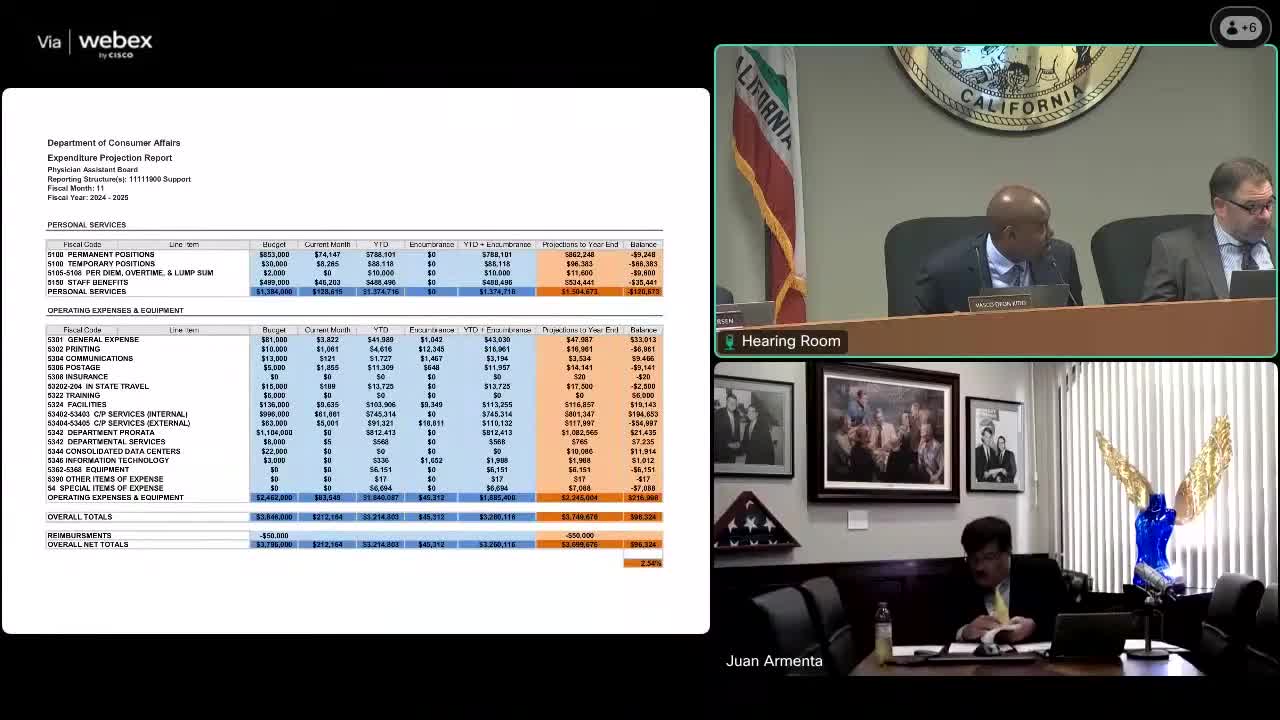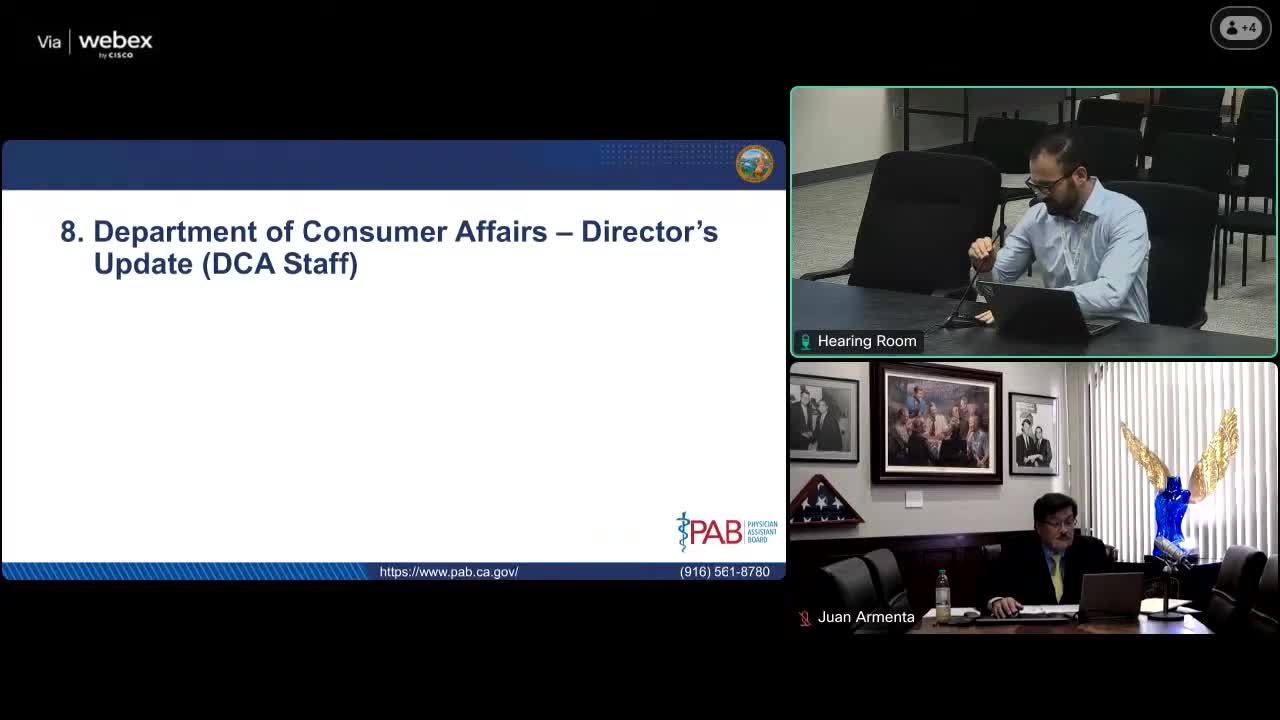Article not found
This article is no longer available. But don't worry—we've gathered other articles that discuss the same topic.

Physician Assistant Board backs AB 1501 to extend board, raise supervision ratio and update fees

Physician Assistant Board supports AB 489 to bar AI systems from posing as licensed health professionals

